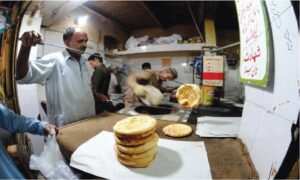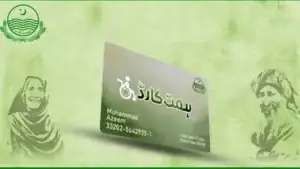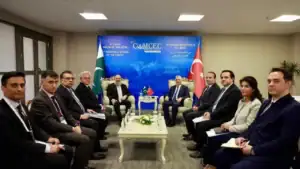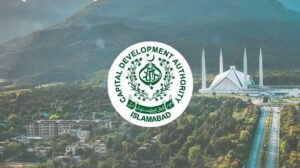
Ishaq Dar, the foreign minister and deputy prime minister, presided over a meeting of the Executive Committee of the National Economic Council (ECNEC) in Islamabad.
The current main line-1 (ML-1) of Pakistan Railways was cleared for upgrade with a reduced scope. Phase I of the project, which covers the 929 km between Karachi and Multan, would be prioritized.
A project named “Flood Response Emergency Housing Project (Phase-I),” which would be financed by a loan from the Asian Development Bank, was also taken into consideration and authorized by the ECNEC. The initiative is to assist the people of Sindh who have been impacted by flooding by rebuilding more than 250,000 flood-resistant homes under community leadership.
Additionally, the ECNEC reviewed and authorized four projects related to the water sector, one of which was the Punjabi government’s “Construction of Dadhocha Dam (revised)” project. The project would provide 35 MGDs of water, which will assist Rawalpindi overcome its water shortage.
The Gomal Zam Multipurpose project, the Raising of Mangla Dam project, and the Golen Gol Hydropower project were among the other projects authorized by the water sector. Now, all three projects are headed toward completion.
The forum also endorsed the “Development of Integrated Transit Trade Management System.” The proposal calls for the creation of a Land Port Authority, the building of cutting-edge Border Crossing Points at Torkham, Chaman, and Wahga, digital end-to-end tracking of containerized cargo, and other things.
The “Karachi Neighborhood Improvement Project (KNIP)” was also authorized by ECNEC, and its implementation duration was extended by six months to December 31, 2024. In a few chosen Karachi localities, the initiative seeks to improve the usability, accessibility, and aesthetic appeal of public areas like as streets, parks, open spaces, and roadways.








